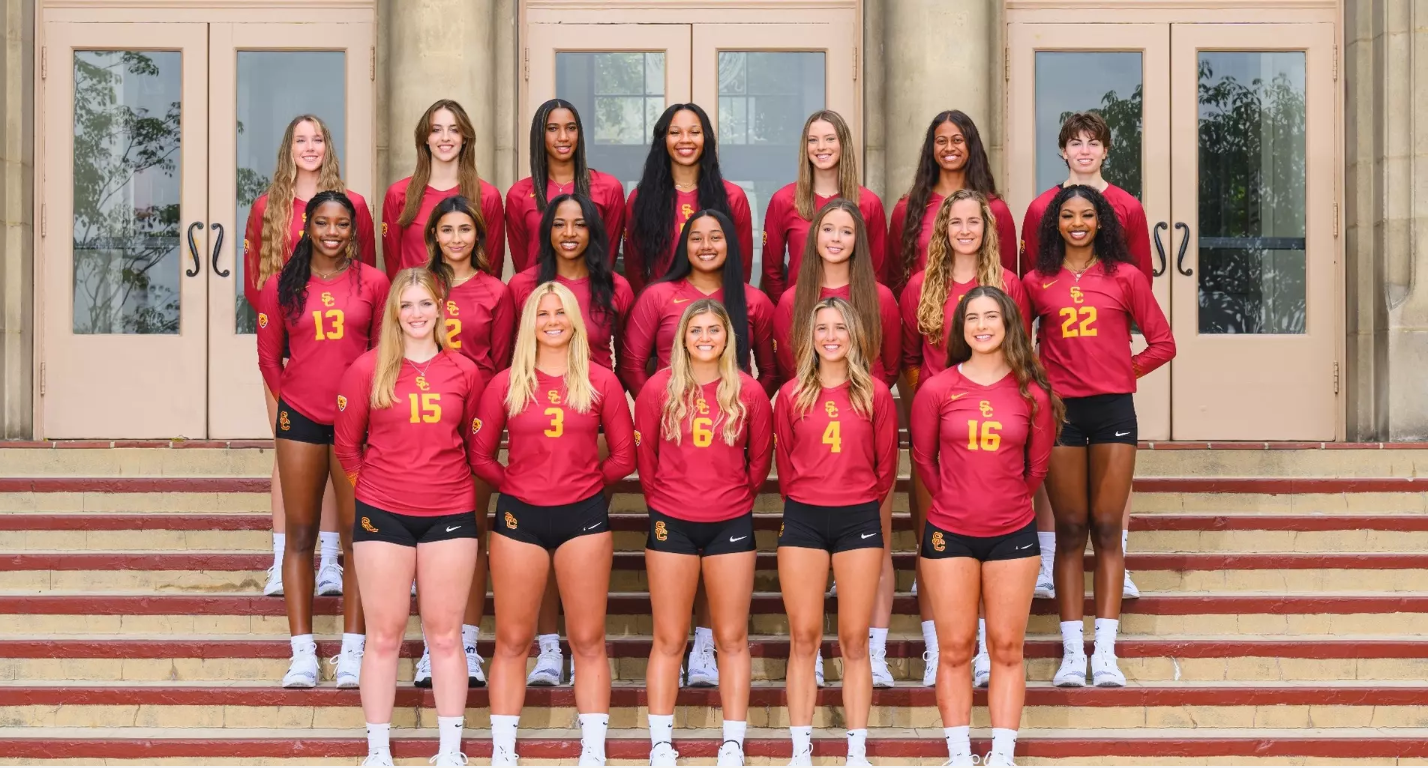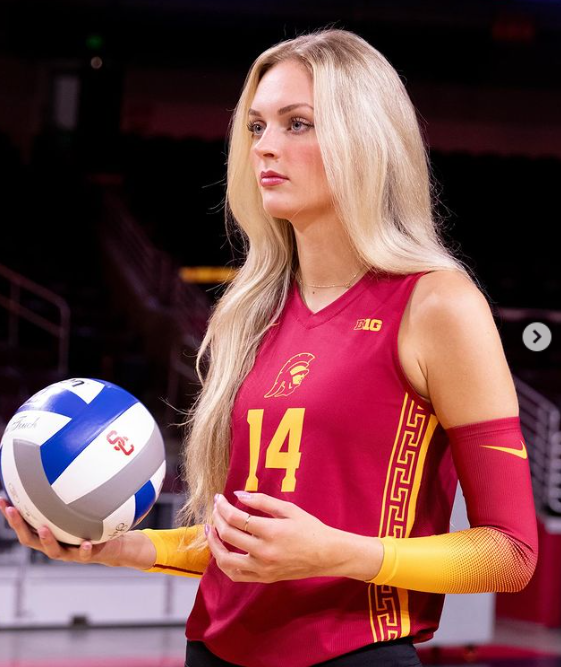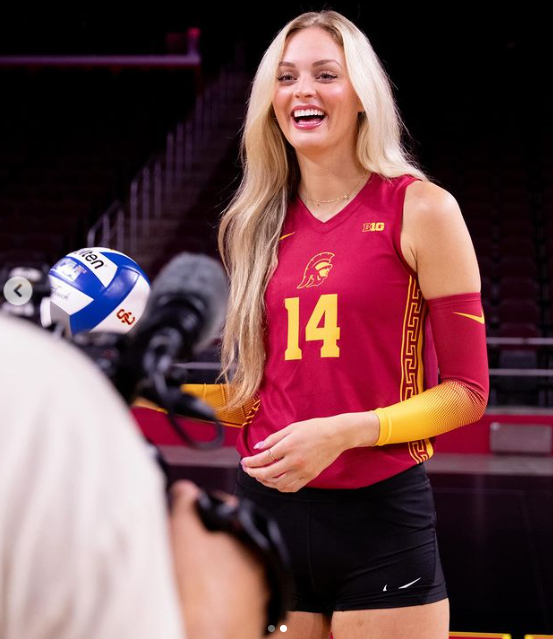
usc women’s volleyball
The University of Southern California (USC) has a strong reputation for athletic excellence, and its women’s volleyball team is no different. The USC Women’s Volleyball program is one of the top teams in college volleyball, competing at the highest levels for decades. In this article, we’ll explore the team’s history, achievements, standout players, coaching staff, and its overall influence on the sport.
History of USC Women’s Volleyball
USC Women’s Volleyball was established in 1976 and quickly became a dominant force in NCAA volleyball. With some of the best coaches in the sport’s history, the team built a winning tradition. The Trojans have won multiple national championships and produced players who have gone on to play in the Olympics and professional leagues.
The team’s success comes from a commitment to recruiting top talent from all over the world. This dedication has kept them among the elite college volleyball programs. USC is not just about winning games—they’ve also focused on building a culture of excellence both on and off the court.

National Championships and Achievements
USC Women’s Volleyball is known for its winning legacy. The Trojans have won three NCAA national championships in 1981, 2002, and 2003, solidifying their place as one of the most successful programs in college volleyball history. These titles were won under coaches Mick Haley and Chuck Erbe, who led the team during different eras of success.
In addition to national titles, the team has also won several Pac-12 Conference championships. The Pac-12 is considered one of the toughest volleyball conferences, which makes USC’s continued success even more impressive. Year after year, the Trojans are contenders for conference titles and NCAA tournament success.
Key Players Who Built the Program
The success of USC Women’s Volleyball is largely due to the remarkable athletes who have played for the team. Many of these players have gone on to achieve success at the professional and international levels.
- April Ross: A volleyball superstar, April Ross is an Olympic medalist and one of the best beach volleyball players in the world. During her time at USC, she was a two-time All-American and led the Trojans to their 2002 national championship win.
- Samantha Bricio: Known for her powerful hitting, Samantha Bricio was one of USC’s top players. She holds records for career kills and aces and was named the 2015 AVCA National Player of the Year.
- Natalie Hagglund: A standout libero, Natalie Hagglund was a three-time All-American known for her defense. She helped lead USC to several deep NCAA tournament runs and was a key leader on the court.
- Debbie Green: Debbie Green is considered one of the best setters in volleyball history. She played for USC in the late 1970s and helped the Trojans win their first national championship in 1981. Green went on to have a successful coaching career and was inducted into the Volleyball Hall of Fame.
These players, along with many others, have contributed to USC’s winning tradition and helped shape the program’s legacy.
The Coaches Behind the Success
USC’s volleyball coaches have played a crucial role in the team’s success. Their leadership and guidance have not only helped develop the players’ skills but also created a culture of teamwork and dedication.

- Mick Haley: Mick Haley is one of the most well-known coaches in NCAA volleyball. He led USC to back-to-back national championships in 2002 and 2003. Haley’s ability to recruit top players and develop their talents was key to USC’s success during his time as head coach.
- Chuck Erbe: Chuck Erbe was the coach who led USC to its first national championship in 1981. His focus on fundamentals and strategic play helped establish USC as a dominant team in college volleyball.
- Brent Crouch: The current head coach of USC Women’s Volleyball, Crouch has continued the program’s tradition of excellence. With his experience and knowledge of the game, he’s helping guide the team through tough Pac-12 seasons and NCAA tournament runs.
These coaches have all contributed to the success and reputation of USC Women’s Volleyball, ensuring that the Trojans remain a top contender in college volleyball.
USC’s Influence on Collegiate Volleyball
The USC Women’s Volleyball program has had a major impact on college volleyball as a whole. As one of the most successful teams in the history of NCAA volleyball, USC has set the standard for what it means to be a top program. Their success has drawn more fans to the sport and raised the profile of women’s volleyball.
USC has also contributed to the strength of the Pac-12 Conference, which is one of the toughest conferences in the country. Alongside other powerhouse programs like Stanford and UCLA, USC has helped make the Pac-12 a competitive battleground for volleyball.
Additionally, the program has helped grow the sport by producing players who go on to compete internationally, including in the Olympics. USC Women’s Volleyball has become a stepping stone for athletes who want to take their game to the highest levels.
Looking Forward: The Future of USC Women’s Volleyball
The future of USC Women’s Volleyball looks promising. With a strong coaching staff, talented players, and a history of success, the team is well-positioned to continue its winning ways. USC’s ability to recruit top players, stay on the cutting edge of training and strategy, and maintain its competitive edge ensures that the Trojans will remain a force in college volleyball for years to come.
The team also benefits from excellent facilities and a passionate fan base. The Galen Center, where the team plays its home games, is a state-of-the-art arena that provides an exciting atmosphere for fans and players alike. The team’s alumni network also continues to support the program, with former players offering mentorship and guidance to current athletes.
As volleyball continues to grow in popularity, both in the U.S. and internationally, USC Women’s Volleyball will continue to be a major player in the sport’s development. The team’s dedication to excellence, both on and off the court, ensures that they will remain a model program in the world of collegiate athletics.
Leave a Reply